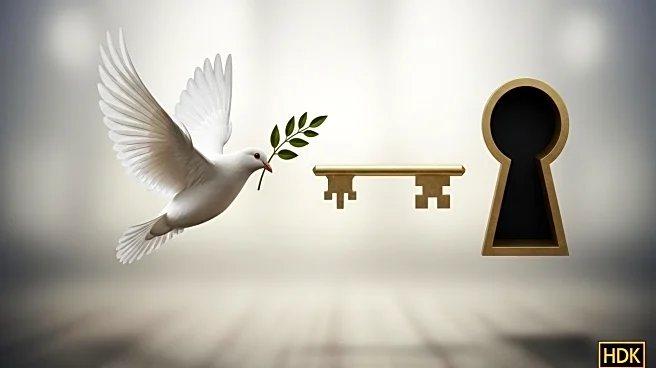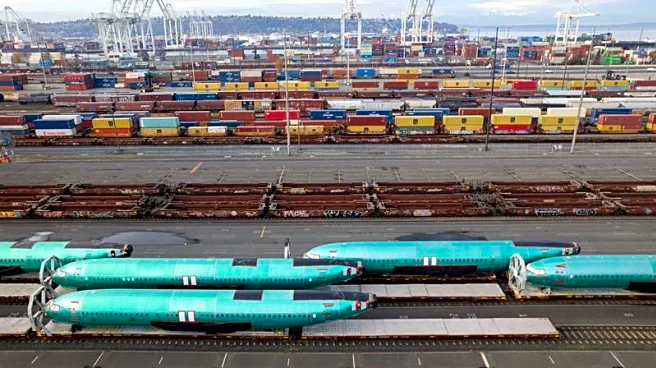What's Happening?
Israel and Hamas have reached a hostage-ceasefire deal, marking a potential end to the Gaza war. The agreement involved rare dual concessions from both sides, influenced by external pressure. President Trump announced the first phase of the ceasefire, which includes the release of hostages and Palestinian prisoners. The deal represents a shift in sequencing, with both parties agreeing to terms they had previously resisted. The announcement was met with relief and gratitude in Tel Aviv, where citizens expressed appreciation for President Trump's role in facilitating the agreement.
Why It's Important?
The concessions made by Israel and Hamas are significant, as they demonstrate a willingness to compromise for peace. This development could lead to a reduction in violence and a stabilization of the region. The involvement of President Trump highlights the impact of international diplomacy in resolving conflicts. The deal may set a precedent for future negotiations, encouraging other parties to engage in dialogue and seek peaceful resolutions. The broader implications of this agreement could influence regional politics and international relations, potentially leading to a more stable Middle East.
What's Next?
The implementation of the ceasefire and the release of hostages and prisoners will be critical in determining the success of the agreement. Continued diplomatic efforts will be necessary to address remaining issues and ensure lasting peace. Stakeholders, including political leaders and international organizations, will likely monitor the situation closely, with potential reactions influencing future negotiations. The road ahead may involve further discussions and agreements to solidify peace and security in the region.











